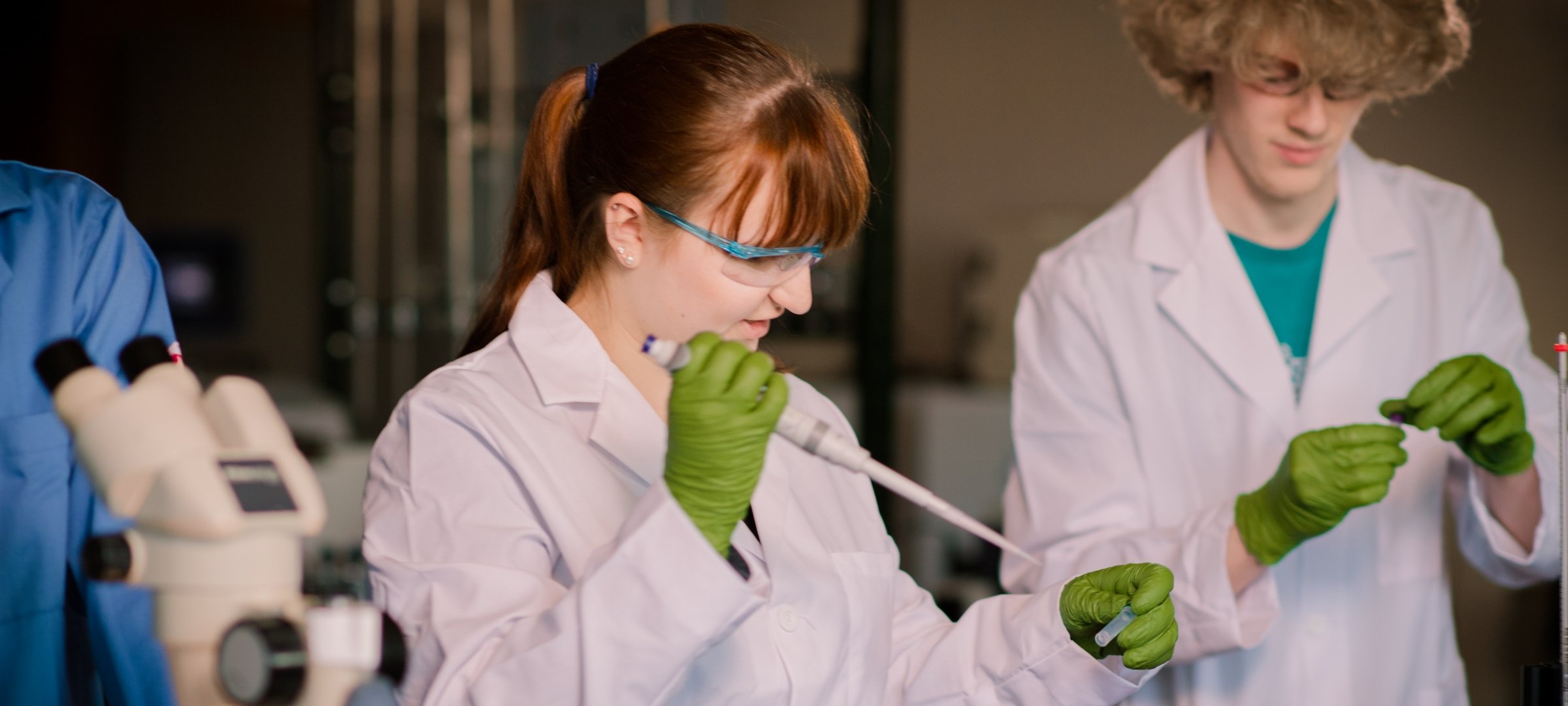Work With Biological Information That is Revolutionizing Society
Rapid developments in genomic and molecular research + extreme advances in information technologies = a multitude of biological information . . . and the need for experts to compute, process, model, simulate, and analyze it.
Enter computational biology, a fusion of biology and IT. Specialists in this field use computational analyses to study the vast information provided by modern molecular biology—such as DNA sequences, which are growing at an unprecedented rate. With a Bachelor of Science in Computational Biology, you'll be prepared to enter a unique and cutting-edge field of biology/medicine and analyze data that may support the creation of new pharmaceuticals, treatments for life-altering diseases, improvements in crop production, or protection of the environment.
Request Information
Form loading . . .
There's a benefit to studying computational biology at a technological university!
Tomorrow Needs Innovative Computational Biologists
As the world of biological data expands, so does the need for talented mathematicians and statisticians who understand biological information, genomes, and molecules. A degree in computational biology opens doors—you'll have opportunities to solve real-world problems in a diverse range of fields, including pharmaceuticals, healthcare, academia, government, and more. Blend your biology skills with science, technology, engineering, and mathematics.
Career Opportunities for Computational Biology Majors
Computational biology majors are in demand, especially as healthcare and research incorporates tools like AI. The U.S. Bureau of Labor Statistics projects 23% employment growth between 2022 and 2032 for computer and information research scientists. Plus, computational biologists work in some of the best paying and most satisfying jobs. Data Scientist (#8) and Statistician (#12) are among the 100 Best Jobs according to U.S. News & World Report in August 2024. Some of the jobs open to you with a BS in Computational Biology:
- Genotyping
- Genomic Sequence Analysis
- Sequence Assembly
- Database Administration
- Pharmacogenomics
Michigan Tech Computational Biology Majors Have Been Hired By
The growing list of companies that have hired Michigan Tech computational biology graduates includes:
- Douglas Corporation
- Empirical Bioscience
- MDI Biological Laboratory
- National Marrow Donor Program


